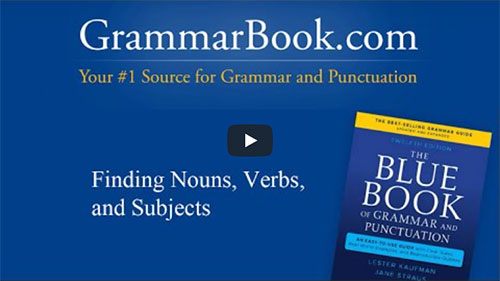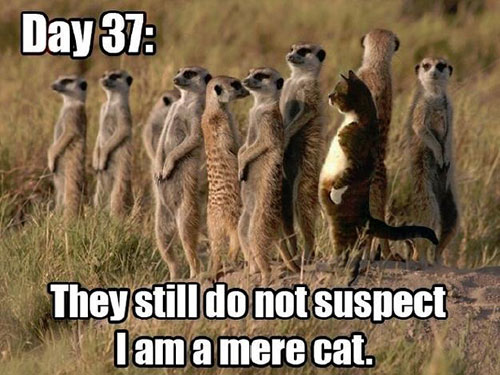|
What Is Apposition in Grammar?
|
|
In writing and in speech, we will often include information that further specifies or identifies what we are communicating:
Caleb's son, Richard
Jane Doe, the mayor
Linus, Lucy's brother |
When we include this extra information, we are using what is known in grammar as apposition. We also refer to these additional details as appositives.
Apposition Definition and Examples
Originating from Latin for "to place near; contribute as an additional element," apposition is the placing of a noun or noun substitute beside another noun or noun substitute to rename, restate, identify, or further explain it.
Consider the following:
Please give it to Caleb's son.
Please give it to Caleb's son, Richard.
Please give it to Caleb's son Richard. |
In the first sentence, we understand only that Caleb has a son. In the second and third sentences, the appositive, Richard, identifies who Caleb's son is. The sentences also indicate the number of sons Caleb has—something we'll further address in a moment.
Apposition can apply to longer noun phrases as well:
Meet Harold, the fearless inventor of the car-roof seat.
Paris, the City of Lights
the new Porsche Cayenne, my recently acquired gift to myself |
Apposition Examples: Restrictive and Nonrestrictive
Apposition can be restrictive or nonrestrictive with the information it provides. If the appositive is restrictive, it is necessary to the meaning of the relationship between the noun or noun phrase and its substitute. If it is nonrestrictive, the apposition provides additional insight that is not vital to our understanding.
Restrictive and nonrestrictive appositives are identified by their punctuation or lack thereof. Let's return to our previous examples:
Please give it to Caleb's son.
Please give it to Caleb's son, Richard.
Please give it to Caleb's son Richard. |
The first sentence simply states that Caleb has a son—that's as much as we know. In the second sentence, we have an appositive, Richard, set apart by a comma. The comma identifies the appositive as being nonrestrictive. It lets us know that Caleb has one son, and his name is Richard. We now have that extra information about his one son. For that reason, we might not have to use the appositive in all subsequent references.
In the third sentence, we have the appositive with no punctuation. The lack of punctuation signals that the apposition is restrictive. Caleb has more than one son, and this son's name is Richard. If our context includes all of Caleb's sons, we may need to continue identifying their names to be clear about whom we're describing.
Apposition Examples: Case
Appositives take the same case as the noun or pronoun with which they are in apposition.
Examples Subjective Case
We—Isabella and I—are going to the movies this afternoon.
The two employees—Michelina and he—will complete their training next week. |
Examples Objective Case
Isabella, let's you and me go to the movies this afternoon. (the same as let us go to the movies)
The training will be completed next week by the two employees—Michelina and him. (Michelina and him are appositive objects of the preposition by.) |
When considering the case of apposition, we should be mindful to avoid being tricked by a pronoun into using the wrong case.
Example
We girls love to go dancing together. (Girls and we are correct in subjective restrictive apposition; us girls love to go dancing would be incorrect.)
They asked us fraternity brothers to attend the pledge event. (Us and fraternity brothers are correct as restrictive direct-object appositives; they asked we fraternity brothers would be incorrect.) |
Apposition Examples: More About Punctuation
Apposition can be identified by a comma, a colon, a dash, or parentheses.
Examples
Meet Harold, the fearless inventor of the car-roof seat. (nonrestrictive objective apposition)
The training will be completed next week by the two employees: Michelina and him. (nonrestrictive objective apposition)
Please give it to Caleb's son—Richard. (restrictive objective apposition)
Jane Doe (the mayor) will attend the ribbon-cutting ceremony. (nonrestrictive subjective apposition) |
|
View and comment on this
article on our website.
|
|
|

|
Pop Quiz
Determine proper apposition in the following sentences by including or removing comma punctuation that makes the appositives properly restrictive or nonrestrictive.
1. John the first son of Maribel and Joseph is the inheritor of the estate.
2. My wife of thirty years Emily is being promoted at work.
3. Jeb has three sons. Please inform his son, Daniel, about the family event.
4. I have two cousins. My cousin, Danielle, is a concert pianist.
5. That woman over there is Francesa Piccetta doctor of family medicine.
|
 |
The Blue Book of Grammar and Punctuation
by Lester Kaufman and Jane Straus |
The Authority on English Grammar! Twelfth Edition Now Available
An indispensable tool for busy professionals, teachers, students, homeschool families, editors, writers, and proofreaders.
Available in print AND as an e-Book! Over 2,000 copies are purchased every month!
To order the book, simply click the link to order the book from the GrammarBook.com website.
|
Free BONUS Quiz for You!
[[firstname]], because you are a subscriber to the newsletter, you get access to one of the Subscribers-Only Quizzes. Click here to take an Advice vs. Advise Quiz and get your scores and explanations instantly!
We will be adding many more quizzes this year to our already substantial list of them. If you have suggestions for topics we have not yet covered, please send us a message at help@grammarbook.com.
|
Hundreds of Additional Quizzes
at Your Fingertips
Subscribe now to receive hundreds of additional English usage quizzes not found anywhere else!
Teachers and Employers
Save hours of valuable time! You may assign quizzes to your students and employees and have their scores tallied, organized, and reported to you! Let GrammarBook.com take the hassle out of teaching English!
"Fun to test my skills."
"The explanations really help ... thanks!"
"I can select the quizzes to assign to my students, and then the results are reported to me automatically!"
If you think you have found an error in a quiz, please email us at help@grammarbook.com
|
Wordplay

Pop Quiz Answers
1. John, the first son of Maribel and Joseph, is the inheritor of the estate. add commas for nonrestrictive apposition
2. My wife of thirty years, Emily, is being promoted at work. add commas for nonrestrictive apposition
3. Jeb has three sons. Please inform his son Daniel about the family event. remove commas for restrictive apposition
4. I have two cousins. My cousin Danielle is a concert pianist. remove commas for restrictive apposition
5. That woman over there is Francesa Piccetta, doctor of family medicine. add comma for nonrestrictive apposition
|
 |
English In A Snap:
68 One-Minute English Usage Videos FREE |
Learn all about who and whom, affect and effect, subjects and verbs, adjectives and adverbs, commas, semicolons, quotation marks, and much more by just sitting back and enjoying these easy-to-follow lessons. Share them with your colleagues (and boss), children, teachers, and friends as well! Click here to watch.
|
|





